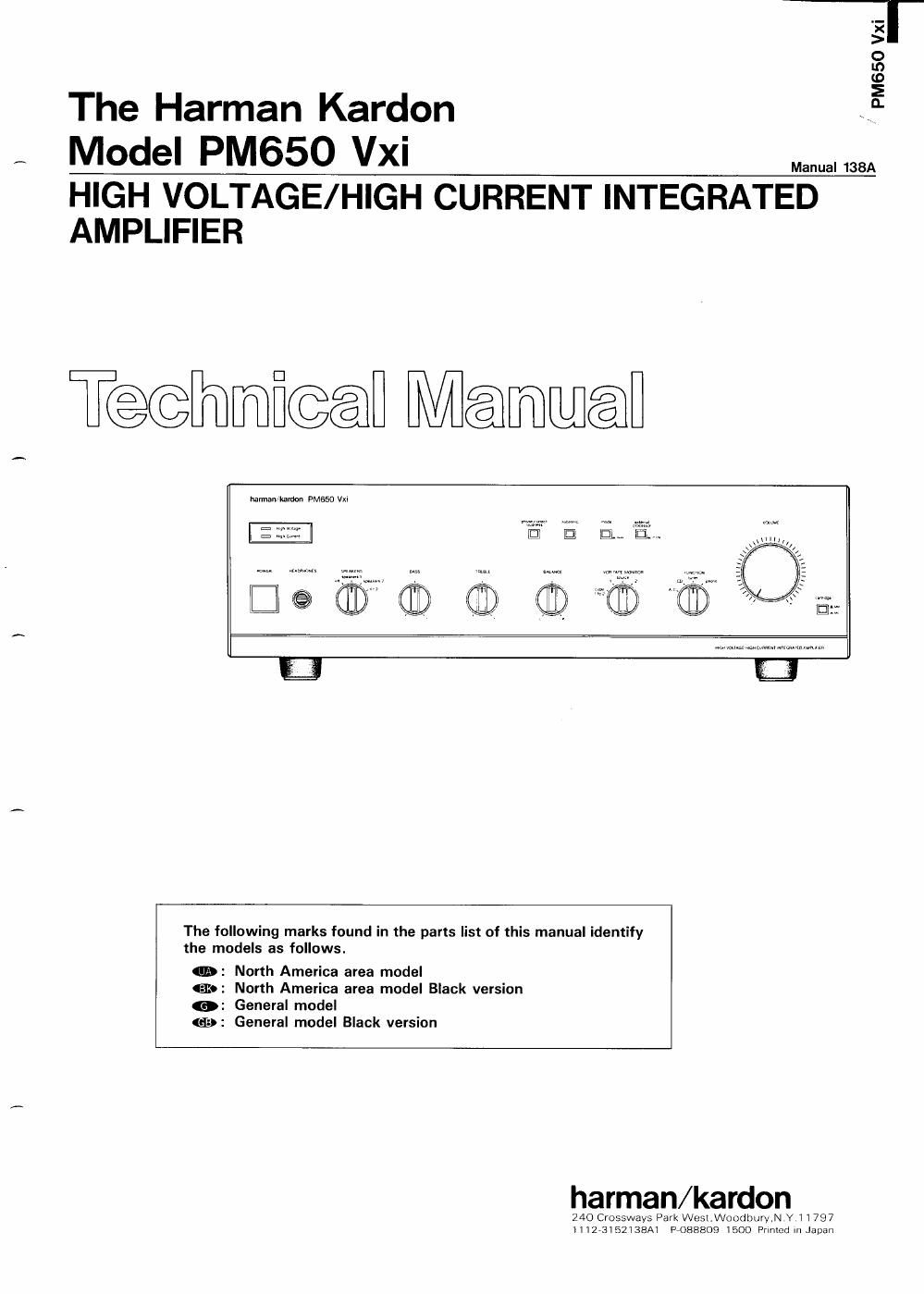Harman kardon pm 650vxi amp
This is the 28 pages manual for harman kardon pm 650vxi amp.
Read or download the pdf for free. If you want to contribute, please upload pdfs to audioservicemanuals.wetransfer.com.
Page: 1 / 28
